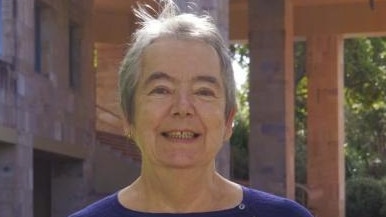Youth crime: Bond University academic’s surprise pitch to solve youth crime and housing crisis
A shock twin solution to both rampant youth crime and the housing crisis has been proposed and it’s already gaining plenty of support. FIND OUT WHY

Police & Courts
Don't miss out on the headlines from Police & Courts. Followed categories will be added to My News.
Troubled teens could be retrained to build houses in a solution to both the youth crime and housing crisis.
That’s the proposal of an experienced Bond University town planning expert who argues it would deliver much-needed housing stock and reduce the levels of reoffending.
The idea has the backing of both Mayor Tom Tate and one of Australia’s leading criminologists.
A White Paper on housing by Bond University Associate Professor Lynne Armitage and Dr Johari Amar criticised governments for “historic underinvestment” in affordable land, building products and skilled tradespeople, and forecast the likely failure of the country to reach its aim of 1.2 million new homes in five years from July 1.

Prof Armitage said putting young offenders into the building sector would have a far-reaching impact.
“One initiative to address the housing skills shortage is by providing opportunities to youth offenders to gain skills through selected training and placement programs related to housing provision,” she said.
“There is a supply of young people who are looking to have something to keep them occupied and this would give them a purpose.
“Houses, as well as labour, are in ridiculously short supply and it seems like a natural alignment for the needs of people to be busy and for housing product to be created.”

It comes weeks after the Bulletin revealed the city was falling further behind housing targets.
A new report by property consulting firm Urbis showed more than 50 new towers need to be built every single year for the next decade for the Gold Coast to meet state-set housing targets.
The Queensland Government’s ShapingSEQ Regional Plan calls for a further 38,800 high-rise apartments to meet population growth targets across the Gold Coast by 2031.

Mr Tate said previous ideas that had failed to solve the housing crisis could not keep being relied on.
“It is great to see outside-the-square thinking to address ongoing problems,” he said.
“They say the definition of insanity is doing the same thing over and over again and expecting a different result, so I encourage innovative thinking.”
Bond University criminologist Dr Terry Goldsworthy said the proposal “had merit”.
He pointed to similar programs being in place in Europe which had seen success.

“The benefits of doing something like this would be that, once they completed their period of detention, they would be able to go out with a skillset which would allow them to be employable,” he said.
“These programs would cost money but this is the sort of thing the LNP government have been referring to with its proposed gold-star rehabilitation.
“It kills two birds with one stone and you’d fix up the lack of people working in the building industry and the more people you can have trained into the workforce the better.
“If they can get this win-win, it would be a good outcome I think.”





